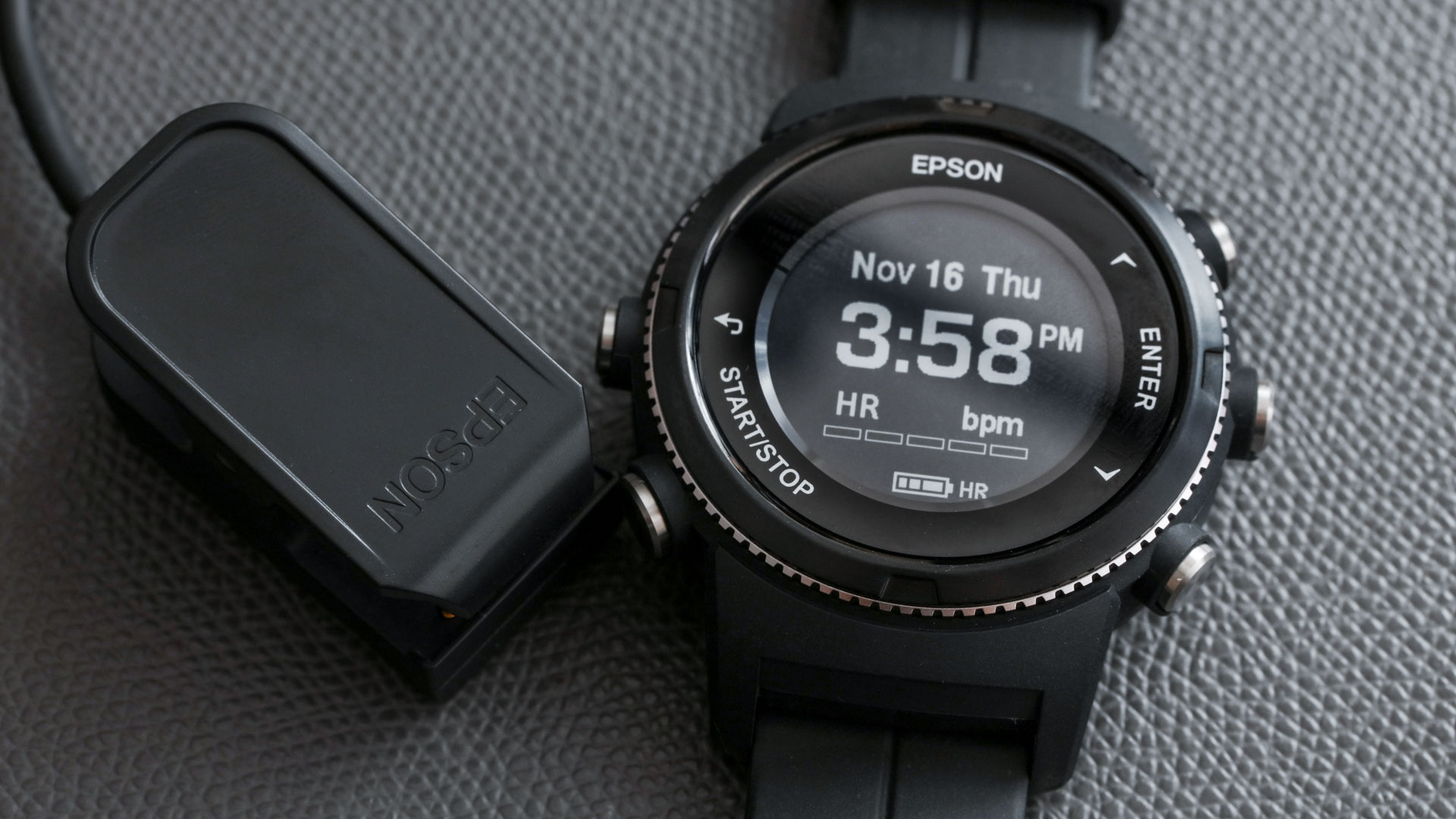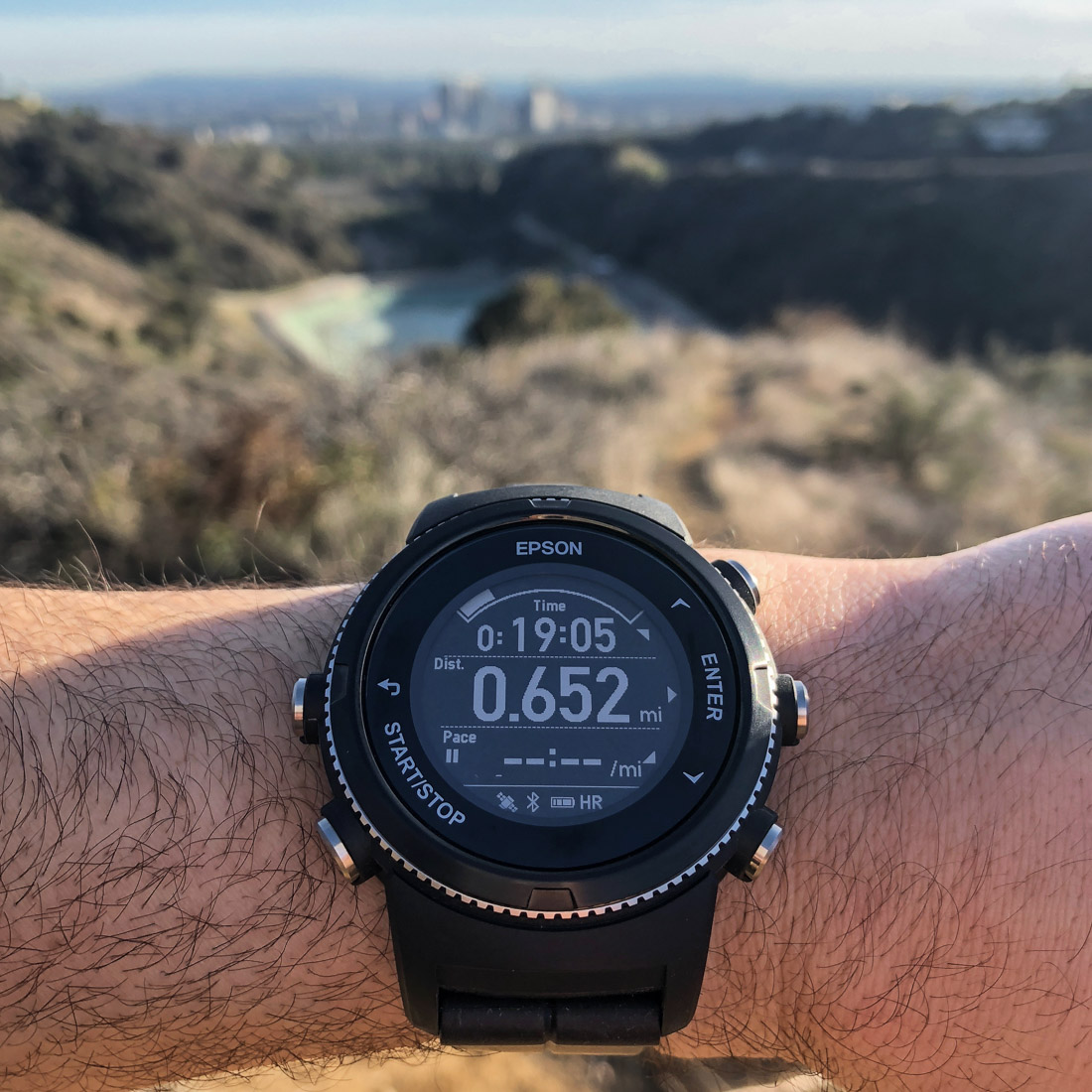
In America as well as some places abroad this particular Japanese fitness smartwatch is being sold under the Epson brand, which is part of the Seiko family. In fact, Epson would probably say that Seiko is part of its family, but here in the watch world, Seiko gets top name billing for enthusiasts. It is known that Epson (most notable for their printers and other hardware) hasn’t produced a lot of actual watches with their name on it, but that seems to be slowly changing in America and possibly other parts of the world. Epson wasn’t entirely clear on their larger goals but they do things like operate Orient Watches (also part of the same corporate family), which produces traditional mechanical watches. In any event, let’s take a look at their current flagship “luxury” (as they put it) Epson ProSense 367 GPS Multisport Watch.
Epson doesn’t call the ProSense 367 a smartwatch but it does have Bluetooth and a mobile phone app associated with it. As a connected smartwatch the ProSense 376 will send you call and message notifications (if you like), as well as make it possible to control music playing on your smartphone. More realistically, owners of the ProSense 367 will not be looking to Epson’s most well-featured fitness smartwatch for missed call notifications but rather for its exercise and activity utility. Epson has created a very compelling product that when compared to the competition has some real advantages and highlights.
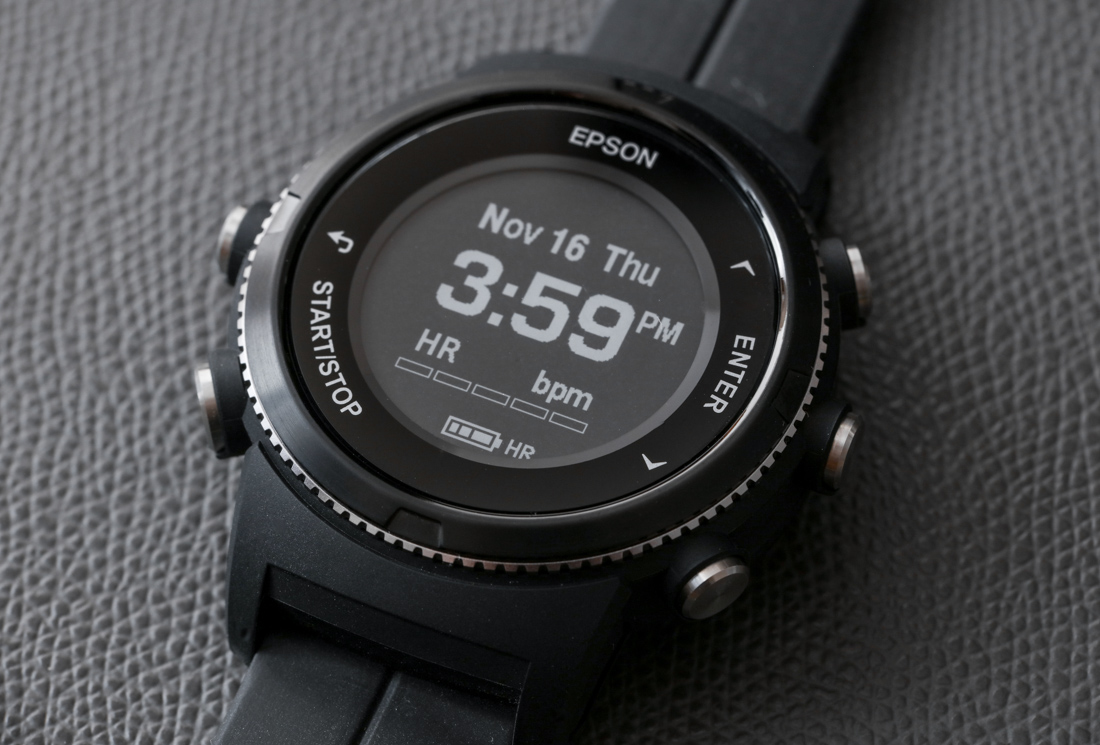
The fitness smartwatch market is probably the hottest area in smartwatches right now simply because these devices are most easily used by consumers for these purposes. So while the mainstream consumer public isn’t quite sure what to do with a lot of smartwatch functionality, their ability to track activity, position, heart rate, etc… make them ideal adventure or training tools.
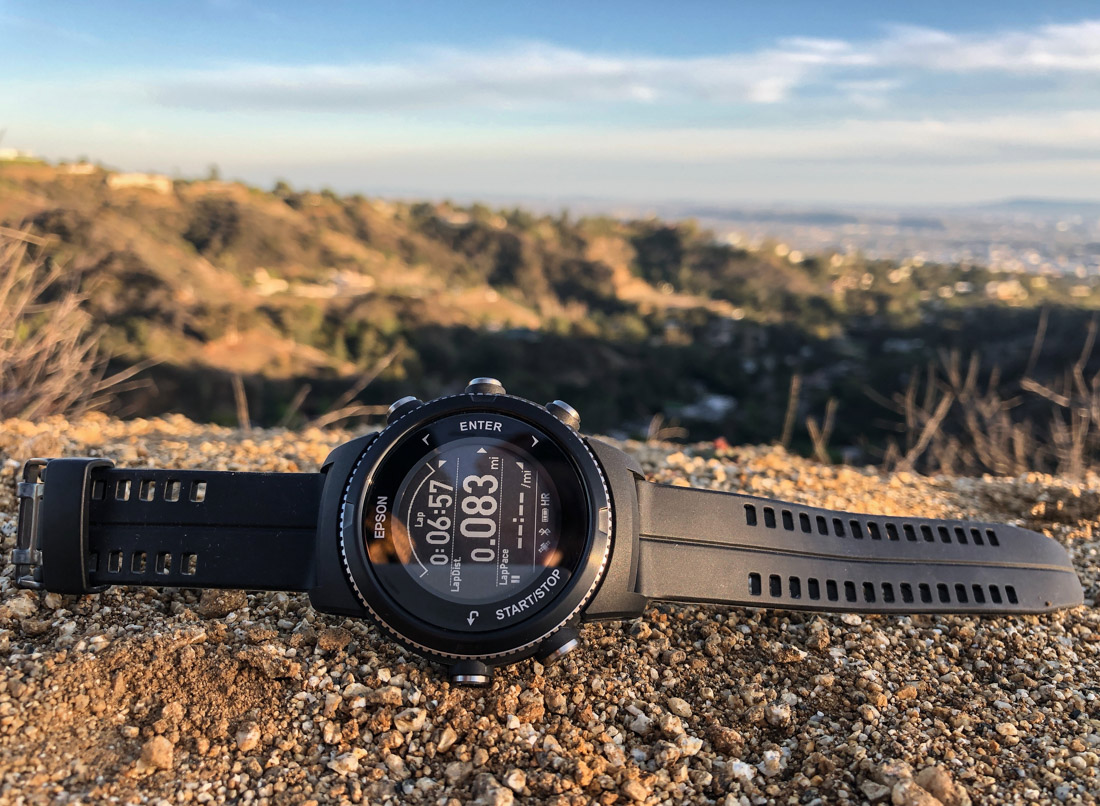
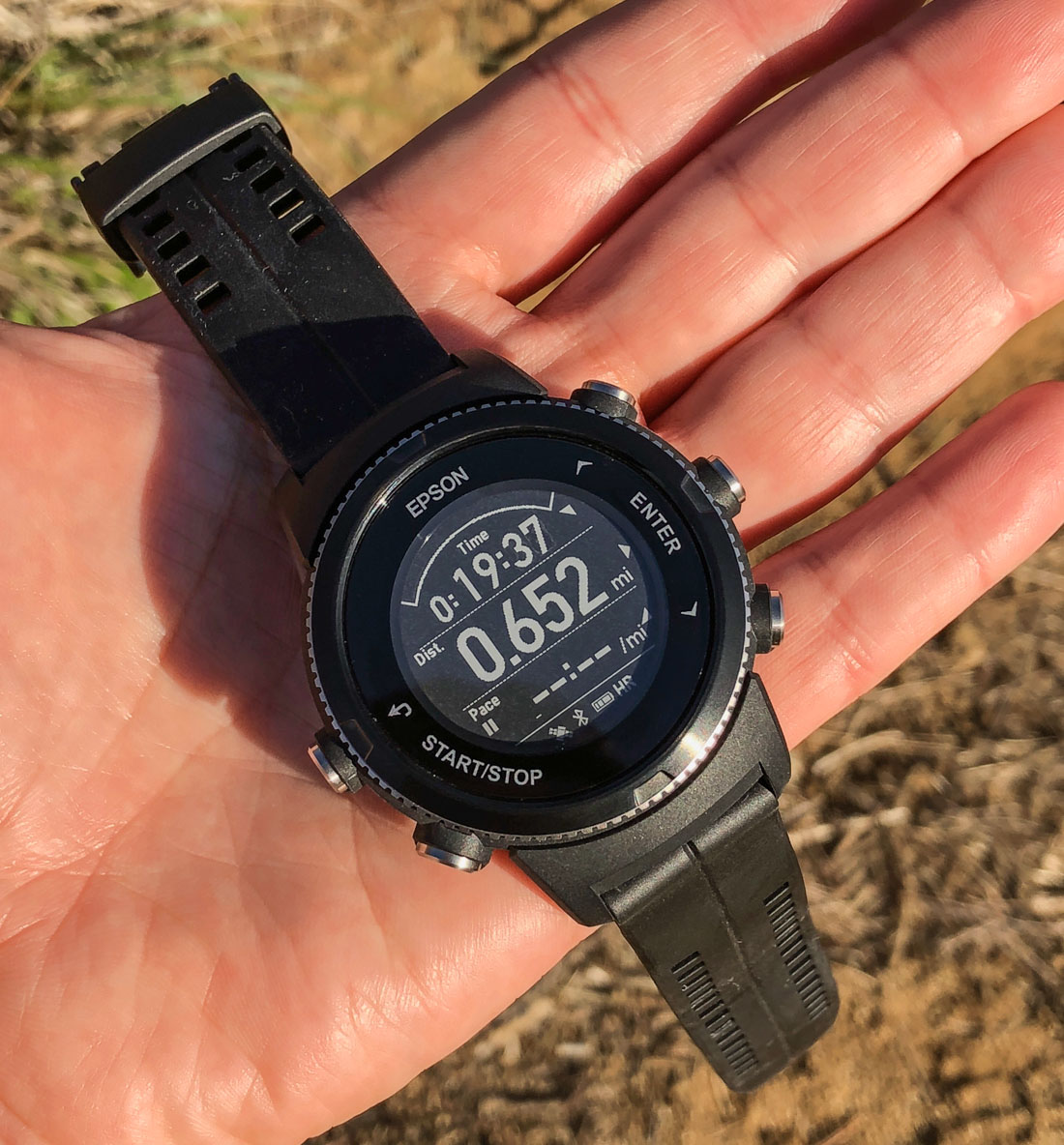
Let’s look at what the Epson ProSense 367 offers which might set it apart from competitive products. In my opinion the major highlights of the watch are its lightweight durable construction, highly legible screen, GPS, heart rate monitor, and relatively long battery life (especially with GPS turned on). There are some features which other models have that aren’t present in the Epson ProSense, but there are often good reasons for that. Perhaps the biggest consideration when buying this watch is whether or not the screen meets your needs.
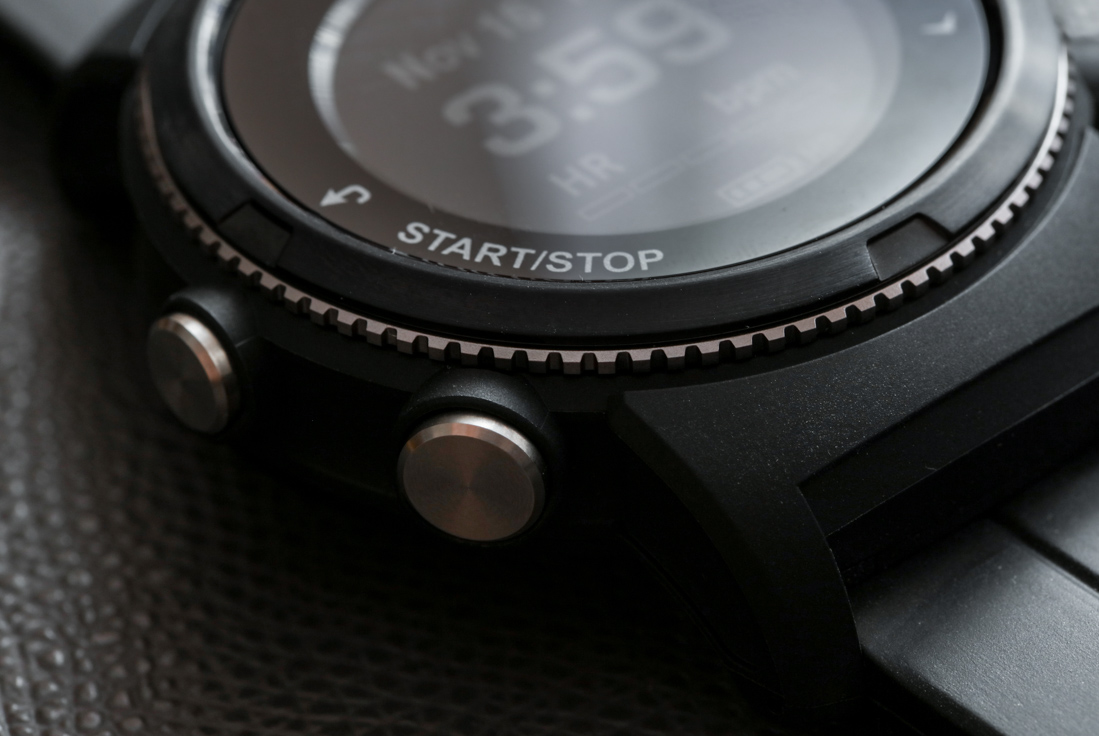
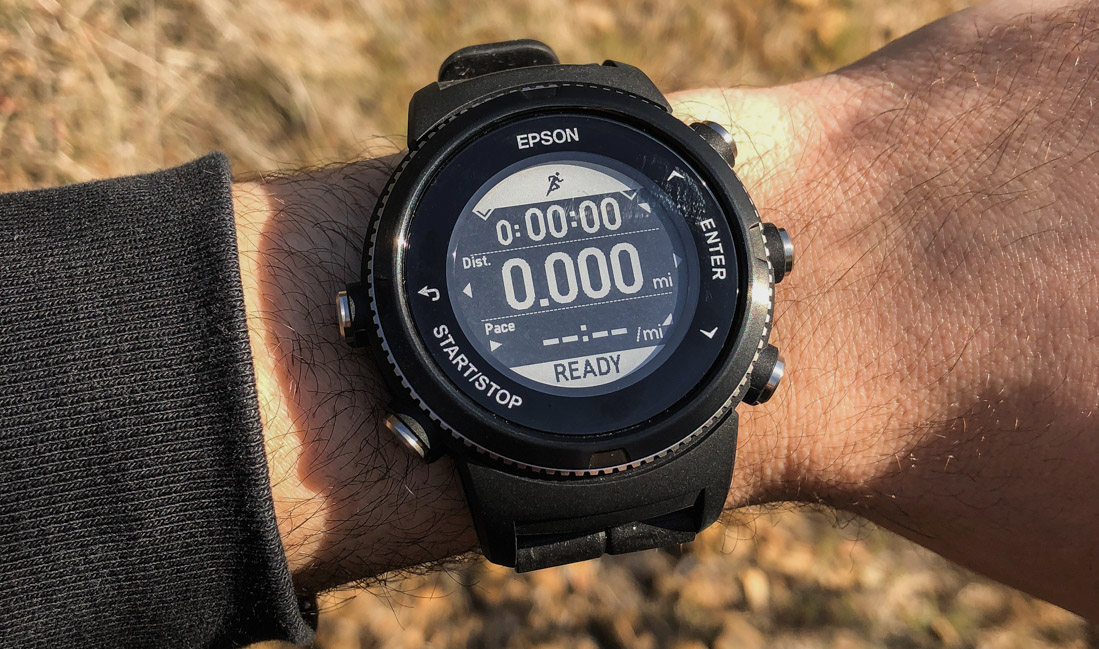
For mostly legibility and battery life reasons Epson decided to forgo a multi-color high resolution screen and instead went with an advanced e-ink display that they call an “EasyView Display” (a form of electronic paper display). The downsides to this display are that it is monochromatic and does not (by design) have a high refresh rate. This means that unlike something like the Apple Watch, you won’t have a high-resolution, colorful display with bright images and animations. The upsides are very high contrast between the light and dark parts of the screen as well as superior power efficiency. Epson wanted the ProSense 367 to be a powerful and reliable GPS-based fitness tool. In order to accomplish that with impressive battery life they needed to have a very efficient screen. It is also important to mention that the ProSense 367 screen does have a backlight so that it can be viewed in dark situations.
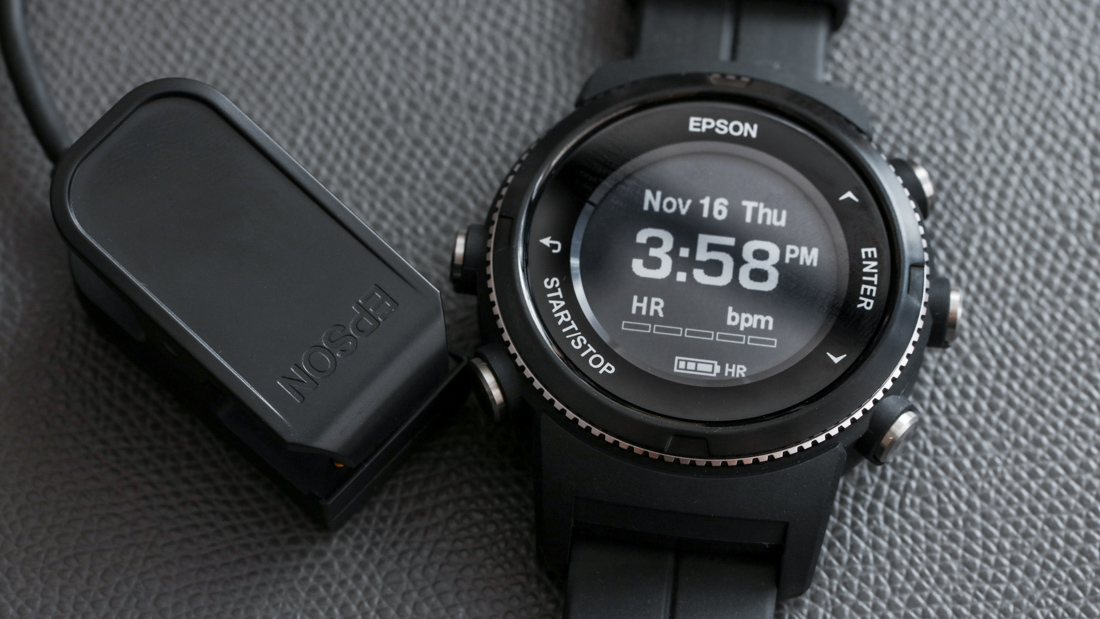
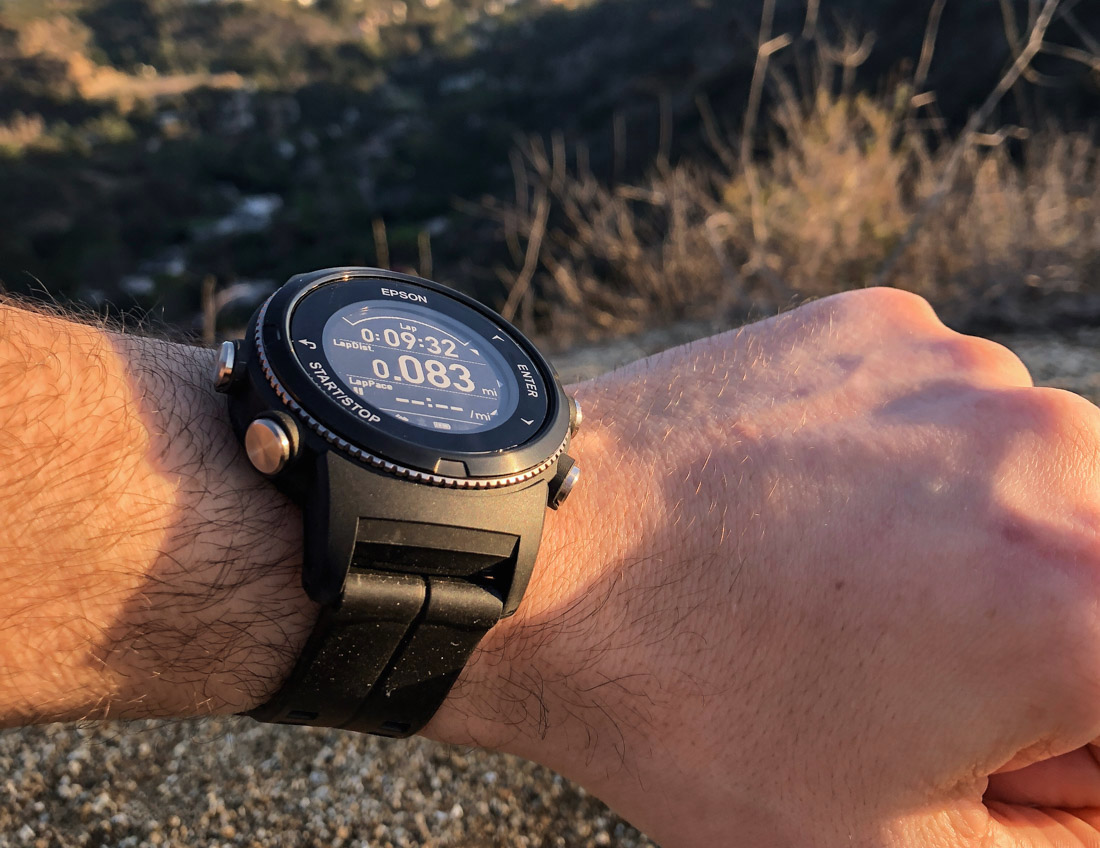
The EasyView Display also benefits from being legible, which as I mentioned is a big deal for a smartwatch. Traditional screens are often too dim to be read in direct sunlight or require battery-intensive backlighting. Having a high contrast electronic paper display (which Epson and Seiko are experts at) is an ideal solution to have a fitness smartwatch that can be easily viewed outdoors and in direct sunlight. Upon reviewing the Epson ProSense 367 I kept thinking to myself “it might not be the prettiest fitness smartwatch around, but it sure does its job well.”
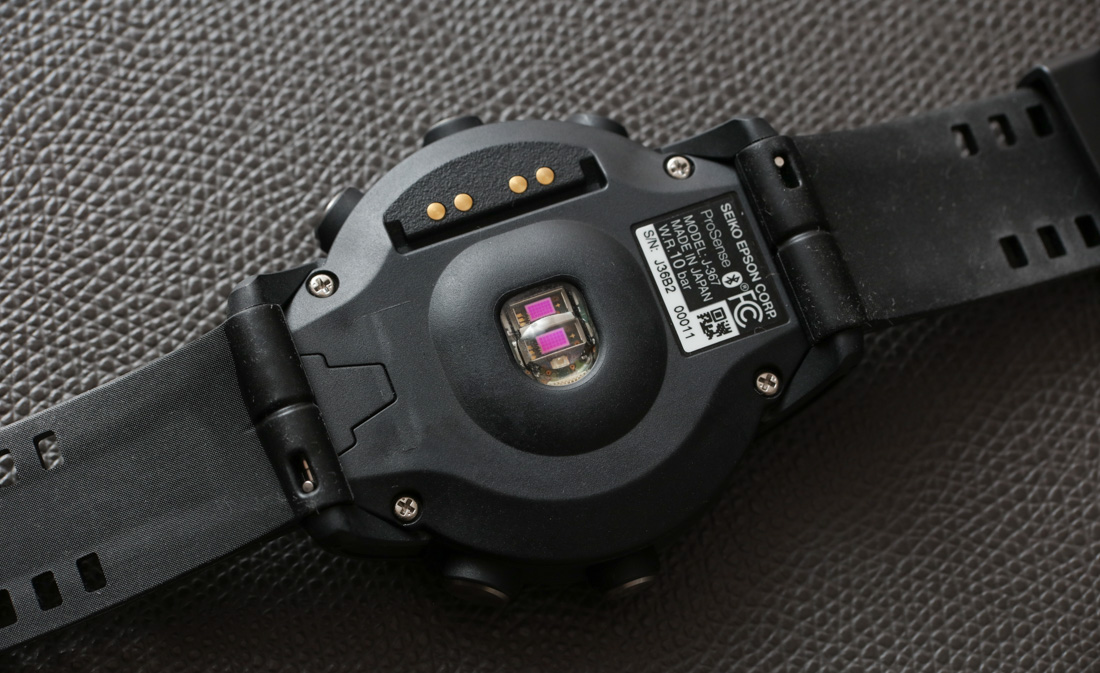
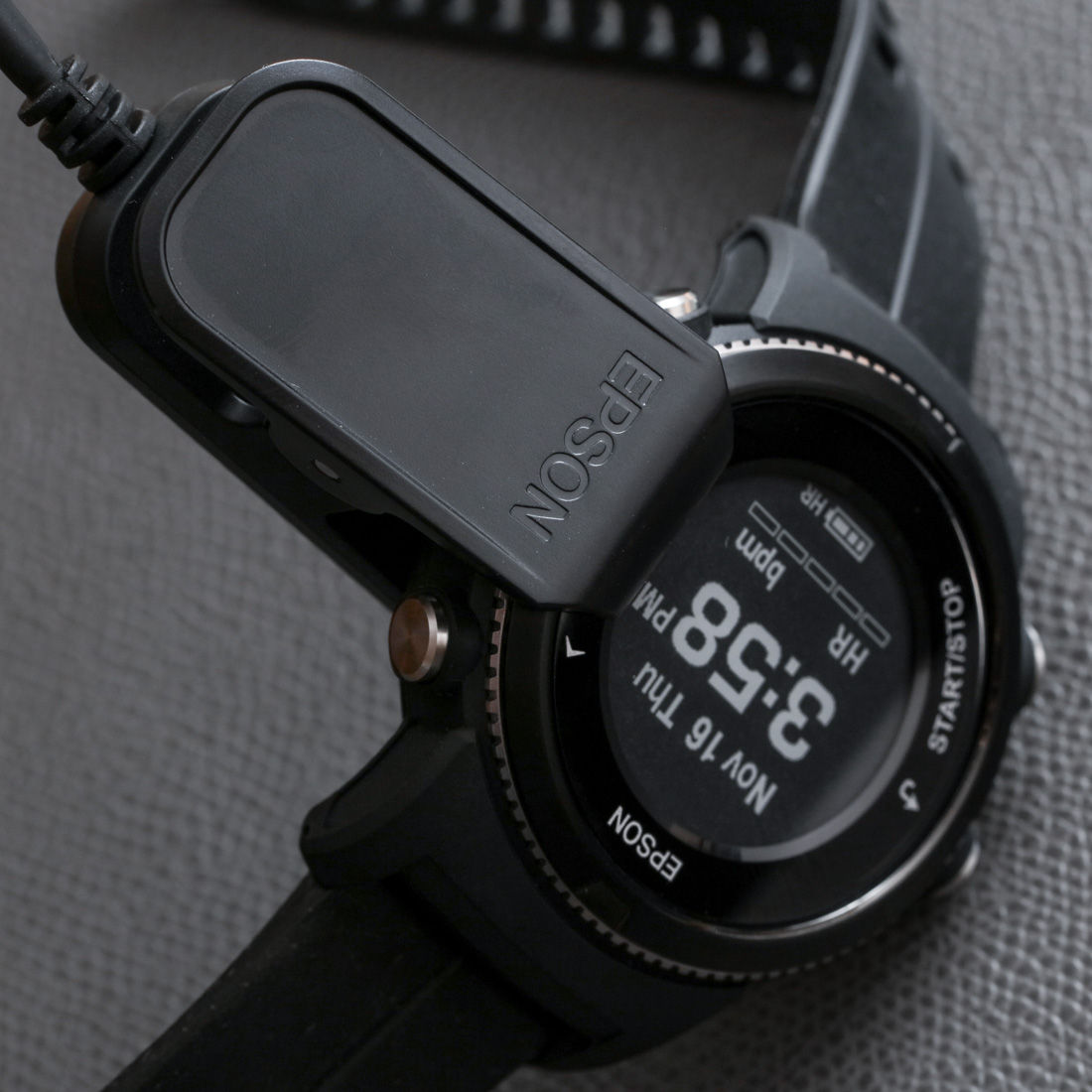
Battery life is among the biggest things consumers worry about when it comes to getting a smartwatch. I didn’t wear the Epson ProSense 367 until it died, but I did find that even after a full day’s use it was only sipping juice. Epson claims that with constant GPS and heart rate tracking (two very energy intensive things) the ProSense 367 has a full 46 hours of battery life. That makes it a class leader according to Epson and in my experience puts it far ahead of anything else on the market that I am aware of. That means you can easily do a two day adventure where your location (via GPS) and heart rate are being tracked and not have to take your watch off to charge. Without the heart rate monitor function, Epson claims the ProSense 367 will last a full 50 hours with constant GPS tracking. Turn that off and you have seven full days of power with the connectivity featured turned on. As just a digital watch without any connectivity, the ProSense will give you 60 days of power.

